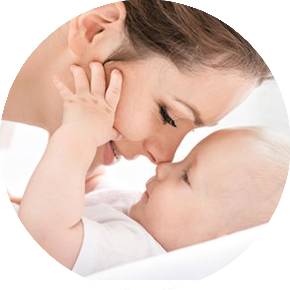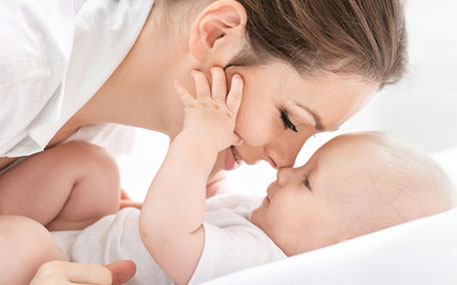Is love the key to baby brain development?

 New research suggests that babies need to feel safe, secure and loved for brain connections to be properly formed
New research suggests that babies need to feel safe, secure and loved for brain connections to be properly formed
We're all familiar with the saying that there is 'nothing stronger than a mother's love', and now it seems that scientists have proved this to be true – at least in terms of baby development. Findings from a baby brain-scanning project undertaken at Cambridge University indicate that babies need to feel safe, secure and loved for brain connections to be properly formed, in turn enabling them to learn effectively.
What did they find?
As part of an ongoing piece of research, scientists are scanning the brains of babies and their mums as the two interact in learning activities. Early findings suggest that babies learn best when their brain waves are in sync with their parents', as opposed to instances where they are at odds.
It was also discovered that a baby's learning ability (most notably language development) is increased when mothers speak using a 'sing-song' voice – referred to by researchers as 'motherese'. As a result, those working on the study are now citing nursery rhymes as a particularly good way for mums to get in sync with their children. Speaking to the BBC, Dr Victoria Leong – who is leading the research – explained:
""Although it sounds odd to us, babies really love listening to motherese even more than adult speech. It holds their attention better and the speech sounds clearer to them. So we know the more motherese the baby hears, the better the language development."
She added that the baby brain is hard-wired to respond to motherese, which is why it's such an effective vehicle for teaching babies new information. Although her research has focused only on mothers and babies, it was highlighted that motherese can also be used to great effect by other family members, such as fathers, siblings or grandparents.
Eye contact was also found to be crucial in attaining a prolonged connection and response from newborns.
Why study baby brains?
While the idea that babies respond well to good face-to-face interactions and conversations has long been established across many behavioural studies, Dr Leong's team is trying to learn what actually happens inside the brain during these periods of attention.
A baby brain is like a blank canvas. Every sight, sound and smell is brand new – creating somewhat of an information overload. However, babies are quick learners and soon enough their worlds come together as they begin to recognise faces and voices; learn languages and make sense of their environments. This is a pivotal moment in every person's life, so understanding the ways in which connections are formed is important.
But, according to Dr Kirstie Whitaker, who is a brain researcher at Cambridge University's psychiatry department, these connection 'breakthroughs' can sometimes happen too quickly, and to negative effect. Speaking to the BBC, she said:
""If babies experience stress early in life, their brains develop a little too quickly and so rather than work out the very best connections they should make, they go with ones that are good enough. And so one of the reasons I would urge a supportive and nurturing environment is to allow children to explore and stay in that particularly curious and flexible brain development for as long as possible."
All in all, it can be agreed that a loving, nurturing environment will encourage babies to thrive.
""The behaviours that love produce are good for learning," says Dr Leong. "Drawing each other into conversation, giving each other attention and being in the moment together are all good for learning."

